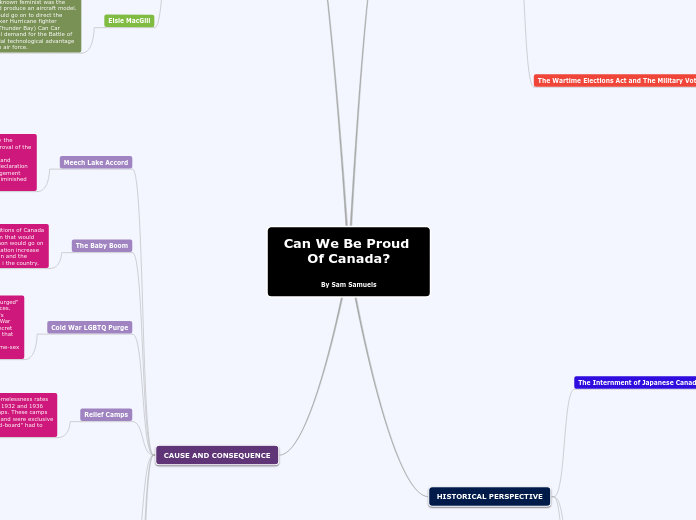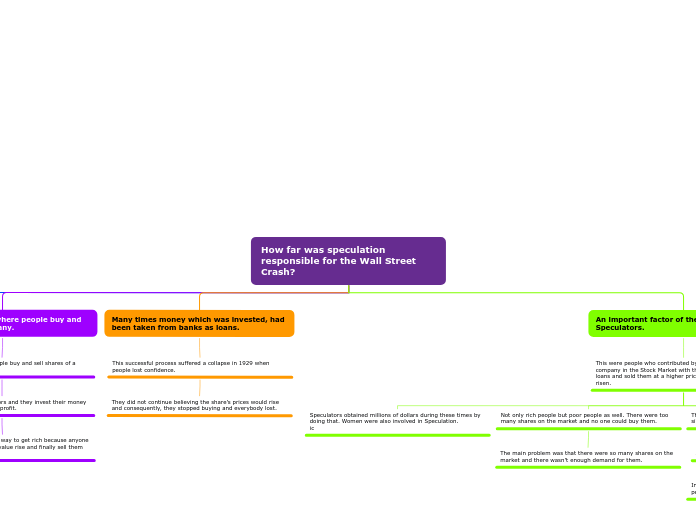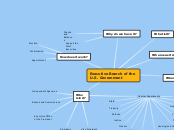Proceeding the implication of the Pill, in July of 1969 the Liberal government of Pierre Trudeau fully legalized the use of contraceptives.
The Regina Riot was one of the most violent events of the Great Depression in Canada. A policeman was killed, dozens of men were injured and 130 people were arrested.
The Germans who suffered about 500,000 casualties, referred to the battle as “das Blutbad” (the blood bath)
The excerpt illustrates how Canada had an unjustly biased Prime Minister, with anti-semantic beliefs, even though during the time (1939-1945) 1.5 of Canada's population was Jewish.
Another attempt would be made to get Quebec on board with the modified version of the Constitution, with the 1992 Charlottetown Accord. Likewise, this endeavor would fail and only leave matters worse. To this day, the Canadian constitution is left unaltered and separatist movements in Quebec as active as ever.
The Japanese discrimination in Canada was notably also factored in proceeding Japan’s attacks on Pearl Harbor and Hong Kong, where Canadian troops were stationed
Can We Be Proud Of Canada?
By Sam Samuels
CAUSE AND CONSEQUENCE
Bennett Buggies
As a result of the Great Depression in Canada, a new mode of transportation known as the Bennett Buggy was invented. Bennett Buggies were deconstructed cars converted into horse-drawn carriages and provided a cheaper alternative for those who couldn't afford gasoline. Additionally, in a fashion almost akin to trailers, these buggies also functioned as portable storage and even living spaces.
The name of these things was derived from the former Prime Minister, R. B. Bennett, intentionally insulting his inability to support his people (Canadian citizens) through the tough economic times of the Great Depression. The vehicle's name was an insult to Canadian politics and consequently worsened, the already poor reputation of the Government during the years of its relevance.
NATO (North Atlantic Treaty Organisation) and NORAD (North American Air Defense Command)
In response to the Cold War, Canada would join NATO alongside The United States and Britain in 1949 and NORAD in 1957.
By joining these pacts, Canada was unintentionally pressured into doing societally controversial things such as accepting nuclear weapons, like the Bomarc missile inside the country. Even more so, these alliances obligated Canada to engage in predominantly American based conflicts against communist regimes such as the Korean Civil War from 1950 to 1953.
These alliances intentionally strengthened Canadian critical trade relations and enhanced protective, military defense over the country.
Idle No More
Idle No More is a grassroots Aboriginal movement created in 2012, that generally opposes certain types of resource exploitation, particularly on First Nations territory.
While it's positive that indigenous people are standing up for their rights, working towards avoiding the exploitation of their people, it's unfortunate that they still have to constantly fight to receive the privileges they deserve against the Government.
This movement has intentionally brought more public awareness and media attention to indigenous issues. However, by the same token, it consequently worsened the reputation of the Canadian government and the country as a whole, revealing how unjust and manipulative Canada has been to the First Nations community.
Relief Camps
In response to the high unemployment and homelessness rates in Canada during the Great Depression, amid 1932 and 1936 the Federal Government established relief camps. These camps were managed by the Department of Defense and were exclusive to able body men, that in return for "room-and-board" had to work extensive, labor-intensive jobs.
While the implication of these work camps may have successfully (as planned) reduced unemployment and homelessness levels in Canada, its implication generated great negative repercussions.
For instance, the Government received notable public hostility from their decision to create these camps, as opposed to addressing the need for reasonable work and wages. Even more so, the poor conditions and lackluster pay for labor in these camps would incite violent protests such as the 1935 Regina Riot and 1938 Bloody Sunday.
Cold War LGBTQ Purge
Between the 1950s and 1990s, LGBTQ individuals were "purged" out of federal public services and the Canadian Armed Forces.
These measures were a part of the Canadian Government's response to national security concerns generated by Cold War tensions. The Government generally kept these matters secret from the public. Officials justified their actions by claiming that they were more susceptible to blackmail from communist regimes with arguments such as that those involved in same-sex relations displayed “character weakness”.
With homosexuality already a socially taboo subject in Canada throughout the 1900s, and this Government action directly targeting LGBTQ citizens only makes matters worse as they shame any non-heterosexual individual, by making their sexual preference seem like a flaw or "weakness''.
Consequently, by this prejudice, the Canadian government disposes of time and money just to have the RCMP investigate dozens of fully capable people, so they can fire them or demote them just because of their sexual preference. Furthermore, as a result, the country lost and deterred a multitude of people from opportunities they should have had the right to freely partake under the constitution.
The Baby Boom
The positive postwar social and economic conditions of Canada fostered the occurrence of a notable baby boom that would span throughout 1946 to 1965. This phenomenon would go on to reshape Canadian society as the mass population increase contributed towards the increase in urbanization and the development of new products and technologies i the country.
The mid-1900s baby boom in Canada both have had its negative and positive repercussions on the nation. Moreover, although it has lead to major positive things such as the augmentation of the country's business and recreational marketplace and the expansion of educational and healthcare services in the country, it has also has burdened the country with excessive environmental damage and a massive population retiring all at once that will require extensive government assistance.
Meech Lake Accord
The Meech Lake Accord was a 1987 attempt made by the Progressive Conservatives, to win over Quebec's approval of the updated Canadian Constitution.
The agreement was to be made between the federal and provincial governments, most notably involving the declaration of Quebec as a "distinct society". However, the arrangement failed after political support for the terms gradually diminished in provinces outside of Quebec.
Would consequently create political tensions between Quebec and the Federal Government, that to this day threaten National Unity in Canada
CONTINUITY AND CHANGE
Elsie MacGill
Elsie MacGill was one of the best Canadian Aeronautical engineers of her time. This largely known feminist was the first female individual to design and produce an aircraft model.
Throughout World War Two, she would go on to direct the mass production of over 1500 Hawker Hurricane fighter planes, in a recycled Fort William (Thunder Bay) Can Car facility. These planes were in critical demand for the Battle of Britain and gave the Allies the crucial technological advantage they needed to combat the German air force.
Elsie Mac Gill would go on to be recognized as a war hero dubbed "the Queen of Hurricanes"; a hugely inspirational figure of aspiring female engineers to this day.
In this instance, while Canada would still be displaying continuity in its support of its British Ally, it would also be displaying a huge progressive change in having its efforts fully recognized to be primarily conducted by a woman.
Canada's Entry Into World War Two
Canada joined World War Two on the 10th of September in 1939, a week after the British had entered.
The given choice to enter the war after the British displays progressive change, showing how Canada was actively diverging itself from its colonizer, making decisions on its own as a more autonomous nation.
The Battle of The Atlantic
Canada entered into the Battle of the Atlantic practically as soon as it joined the war in 1939. This war at sea primarily involved Canada's shipment of supplies and men for the war effort, to Britain. Proceeding the fail of France in 1940, isolated and vulnerable to German attack Britain became more than ever dependent on Canada's ability to deliver as a lifeline sustaining the country. This provisional demand of this battle would become influential to Canada's development of revolutionary technologies, such as radar and would lead to the mass expansion of Canada's Naval forces (growth in RCN, WREN numbers).influence
Canada's involvement in the Battle of the Atlantic influence hug progress and changes in the nations technology and Naval forces.
The Pill
In 1961 a new contraceptive device design exclusively for women was introduced, known as the Pill. This substance partially attributable to the women's movement is considerably recognized as what kickstarted the "sexual revolution", emphasizing recreation and inclusive personal freedom in choices.
The creation and implication of the pill both exemplifies the decline in the following of Christian and other once-popular faiths in Canada (with it promoting the action of premarital sex) and the progressive changing values of the baby boomer-youth.
Signing The Treaty of Versailles
Regardless of its overall failure to fulfill its purpose (preventing wars), the Treaty of Versailles was a positive step towards Canada's autonomy, that would forever change the status of the country. Moreover, by signing the treaty aside from Britain, Canada was given an independent seat in the League of Nations, reinforcing the recognition of the country as an individual nation.
The individual signing of the Treaty was a notably progressive move in detaching Canada from its colonizer, instrumental in determining how internationally the nation would be regarded and respected.
HISTORICAL PERSPECTIVE
St. Louis
When the St. Louis came to Canada in 1939 Canada refused to accept a single one of the 937 Jewish refugees aboard ship. Canada's denial of the passengers was focally due to the poor economic conditions the country was facing (the Great Depression), the rampant anti somatic beliefs during the time and the nations generally isolationist ideals.
While reasons such as the isolationist, strict immigration policies and the Great Depression of the time may have in some respects made the decision to deny the St. Louis understandable, I still personally don't see their decision as ethical or just. This is with one of the additional major motives for the rejection simply being the popular anti-semantic beliefs in Canada during the time, as this factor does apply to concept of economically preserving the nation, and is rather just a point of blatant racism.
Discriminate opinions in Canadian society/politics are clearly illustrated with this excerpt from King’s private diary dated in 29 March 1938, addressing the Prime Minister's thoughts on accepting foreign immigrants/refugees: "We must nevertheless seek to keep this part of the Continent free from unrest and from too great an inter-mixture of foreign strains of blood, as much the same thing as lies at the basis of the Oriental problem... we would have riots if we agreed to a policy that admitted numbers of Jews".
The Conscription Plebiscite
When the effect of Total War came back to Canada with the start of World War Two, with the horrors of war now publicly known (as many were aware from WW1, that just occurred about 20 years prior) the issue of conscription yet again came back to Canada. This time though the government decided to take a somewhat less controversial approach in gaining the approval to pass conscription. Thus, in 1992 consent for conscription was brought upon by a national plebiscite. This vote resulted in the country split on the issue with French Canadians voting overwhelmingly no, and English Canadians voting yes.
Although the statistically the votes turned out to be in favor of passing conscription (2,921,206 against 1,608,609) the Prime Minister couldn't afford to further enrage the largely French disputant, since they threatened National Unity and were already fostering separatist movements for Quebec. Henceforth, to temporarily settle this debacle King declared "Not necessarily conscription but conscription if necessary" just hoping that the war would finish before he had to commit to a decision on the matter.
I find the government's decision to conduct a plebiscite on conscription, both understandable and acceptable, as its an inclusive and equitable way to collectively gather the input of all Canadians while avoiding controversy from those that might see government involvement in the matter as biased.
Additionally, putting the Prime Minister's decision into perspective, I think not immediately, fully committing to implementing conscription or not was a smart move. Furthermore, I consider this because I recognize that it made the final decision to utilize it, more predictable and less shocking to French Canadians that opposed it, reducing how harsh the inevitable backlash would be.
The Internment of Japanese Canadians
Moreover, in a fashion nearly akin to the stages of the Holocaust, families were separated, stripped of their rights, belongings and even relocated into laborious work camps.
Additionally, influenced by fear and propaganda, racist views against the Japanese Canadians were rampant throughout the county. Furthermore, the majority of the Nation's populous during this period, actively discriminated and publicly assaulted the otherwise innocent community.
Empowered by the War Measures Act and motivated by the myth that the Japanese communities in Canada contained "spies" threatening national security, the Canadian government interned thousands of Japanese Canadians (many of which loyal citizens, not even born in Japan), labeling them as "enemy aliens".
NO
The unethical internment of Japanese Canadians in Canada exposes just how socially unjust the Nation's politics were before its Charter was implemented. Furthermore, this is highlighted with how the Government was swiftly able to criminalize its citizens just over wrongful accusations, without any proper investigation.
HISTORICAL SIGNIFICANCE
The Wartime Elections Act and The Military Voters Act
The Military Voters Act allowed soldiers overseas to vote.
The Wartime Elections Act granted the vote to the mothers, sisters, and wives of men in the forces and took way the vote form people born in "enemy" countries.
With military enlistment steadily diminishing and tremendous demand for Canadian recruits, Prime Minister Robert Borden necessitated the implication of conscription. However, he greatly lacked the support of its implication with the majority of Canadians in opposition to the idea of it. So, in order to combat this Borden came up with two ways to bend the public vote in his favor. Henceforth, in 1917 Robert passed two bills known as the Wartime Elections Act and the Military Voters Act.
On a rather positive note, the Wartime Election act gave women the ability to vote in Canadian politics for the first time.
These bills unjustly stripped the right of thousands of Canadian immigrants should have had, to vote. Additionally, by heavily influencing Canada's use of conscription during World War Two, these legislations would lead to the forceful enlistment of tens of thousands of Canadians into the military.
The Battle of The Somme
The Battle of The Somme, (also known as the Somme Offensive) was a fight intended to relieve German pressure off the French army. The battle was conducted from the 1st of July to the 18th of November (about 141 days) and was dubbed the title of, The Bloodiest Battle of World War One.
YES and NO
Even though the Battle won a minor Allied territorial gain, it had a hefty cost, inflicting 650,000 Allied casualties with 24,000 of them being Canadians. The Allies' heavy losses are largely attributable to poor communication, ignorance of terrain disadvantages, and under-equipped men. The acknowledgment of these facts would be pivotal to a great learning curve in how the British and Canadians tackled military tactics.
Moreover, a review of this Battle would come to bring revolutionary long-lasting change in how military tactics and production would be later approached in a fashion relevant to how conflicts are prepared for in present times.
Battle of Vimy Ridge
For the first time in history, Canada made a vital accomplishment that its British allies beforehand had failed to achieve. In April of 1917, the combined force of all four Canadian Corps divisions strategically took the North, France ridge from the Germans, under the direction of General Arthur Currie.
This monumental victory was a crucial international effort that secured a critical position for the Allies in World War Two. Canada's swift success both proved to itself and other nations that it was more than a British colony, capable of independent accomplishments.
(This is further exemplified in this quote from Brigadier-General Alexander Ross, as he quotes how influential the battle was to Canada's identity stating:“in those few minutes I witnessed the birth of a nation.”)
Viola Desmond
In 2010, Nova Scotia and its Primer Darrell Dexter publicly apologized and granted pardon to Viola Desmond, her family and all Black Nova Scotias for the past institutional racism present in the province. Viola, was a Black Canadian women, criminally convicted by a Nova Scotia Court in 1946, for simply sitting in a “Whites only” section of a movie theater.
YES
This provincial acknowledgment for a past racial injustice in Canada is historically significant as it is a snippet of a story revealing of the nation’s past discriminatory culture. It opens up a case that greatly contrasts the country's current legislation, showcasing a piece of how Canada has progressed to be a more equal and socially just society in current times.









